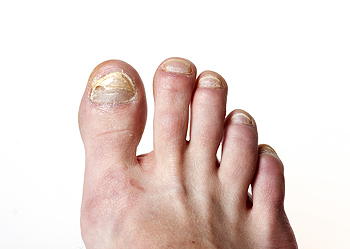
Toenail fungus, also known as onychomycosis, is a common condition that affects countless individuals worldwide. It occurs when fungi, often dermatophytes, enter the nail bed through tiny cracks or cuts in the skin, leading to an infection. The resulting symptoms typically include thickened, discolored nails that may become brittle or crumble over time. Recognizing toenail fungus is essential, as early intervention can prevent further complications. Apart from the visual signs, you may also experience mild pain or discomfort, especially when wearing tight-fitting shoes. To help prevent toenail fungus, it is important to practice proper foot hygiene, such as regularly washing and drying your feet thoroughly. Since fungi thrive in damp environments, be sure your shoes are well-ventilated and moisture-wicking. Additionally, it is beneficial to avoid walking barefoot in public areas, including locker rooms and swimming pools, where the risk of infection is higher. Trimming the nails straight across can also help prevent ingrown nails and potential entry points for fungus. If you suspect you have toenail fungus, it is suggested that you seek prompt treatment from a podiatrist who can offer you treatment methods that are right for you.
For more information about treatment, contact one of our podiatrists of New England Foot and Ankle. Our doctors can provide the care you need to keep you pain-free and on your feet.
Toenail Fungus Treatment
Toenail fungus is a condition that affects many people and can be especially hard to get rid of. Fortunately, there are several methods to go about treating and avoiding it.
Antifungals & Deterrence
Oral antifungal medicine has been shown to be effective in many cases. It is important to consult with a podiatrist to determine the proper regiment for you, or potentially explore other options.
Applying foot powder on the feet and shoes helps keep the feet free of moisture and sweat.
Sandals or open toed shoes – Wearing these will allow air movement and help keep feet dry. They also expose your feet to light, which fungus cannot tolerate. Socks with moisture wicking material also help as well.
If you have any questions please feel free to contact one of our offices located in Chelmsford and Newburyport, MA . We offer the newest diagnostic tools and technology to treat your foot and ankle needs.
